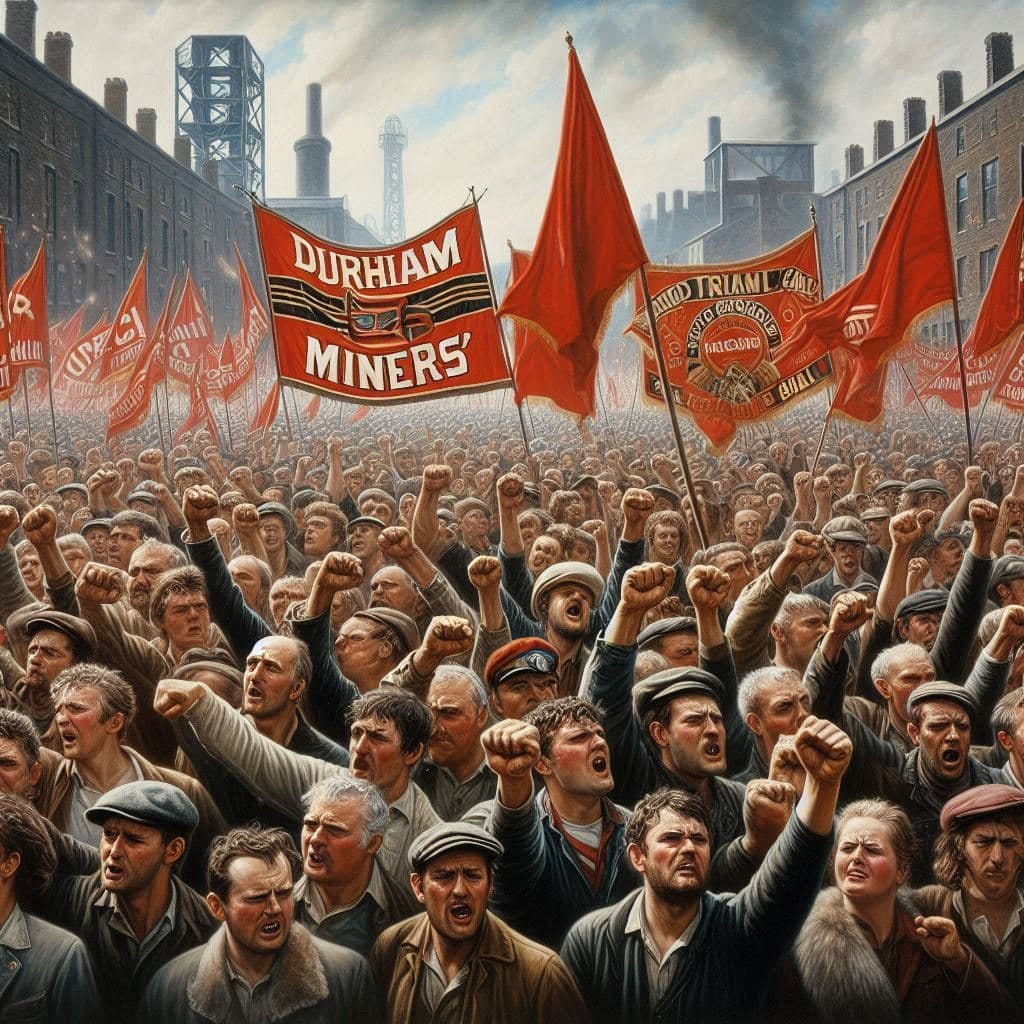Public or private – the railways need to adapt to the post-Covid age
Nostalgia has its place, but the 1980s is not a time to which most of us would wish to return.
By IEA Editorial & Research Fellow Len Shackleton
This weekend saw the 138th Durham Miners’ Gala, that annual nostalgiafest of the labour movement. Ancient banners from long-closed pits, brass bands and fiery speeches: it is a spectacle as traditional and, in its own way, enjoyable as Wimbledon, Trooping the Colour or Lewes Bonfire Night.
This year, one of the speakers was Mick Whelan, the General Secretary of the train drivers’ union ASLEF and – as befits a leading figure of the trade union aristocracy – a member of the Labour Party’s National Executive Council. Mr Whelan is a fine museum piece example of a dyed-in-the-wool trade union leader who never forgets the past. Almost a National Treasure, he heads a union the name of which – the ‘Associated Society of Locomotive Engineers and Firemen’ – reeks of coal-fired history.
In a piece in the Morning Star on Saturday, Mr Whelan recalled the 1984 Miners Strike. He sees Mrs Thatcher’s government as having declared “violent civil war on a section of its own population” and welcomes Labour’s promised enquiry into the ‘Battle of Orgreave’, when the police took on miners in a vicious confrontation where both sides, to be fair, behaved badly. What purpose can now be served by such an inevitably expensive enquiry is difficult to say, though no doubt the lawyers will welcome it just as much as Arthur Scargill and any other gnarled old class warriors.
The past is the past, but unfortunately Mick Whelan’s brand of retro militant unionism is still very much alive and kicking. As he points out in his article, we are now in the 23rd month of ASLEF’s dispute with the train operating companies.
What is this dispute about? Although train drivers are well paid, their pay has recently failed to keep pace with inflation and unsurprisingly they want more than the train-operating companies (TOCs) can offer, particularly since the Department for Transport effectively took over as paymaster when the franchise system collapsed during Covid. The Conservatives wanted any increase to be linked to reform of the archaic roster system, which contractually binds drivers only to a five-day week, with weekend work paid as overtime, on a voluntary basis.
In the days when the bulk of passenger travel was during the week, and commuting was the national pastime, this arrangement made some sort of sense. But now homeworking is the new normal for many: season ticket sales are about a third of what they were pre-lockdown. There has been a marked increase in weekend leisure travel and the train operators, whether tail-end private contractors or Labour’s planned nationalised Great British Railways, need a changed contract which will put weekends on a firmer basis.
The union says that the TOCS have persisted with overtime working because they are too mean to employ extra staff, although some may suspect union members have been happy enough with the system because it more or less guarantees them remunerative overtime whenever they want it.
But a big pay increase and extra drivers with no change to the contract is surely an unlikely way of ending this dispute, even with a new union-friendly Labour administration. The reality is that passenger revenue is still only at about 80% of pre-Covid levels, with the taxpayer now having to fund over half of all the railways’ current expenditure – plus the heavy costs of infrastructure investment, not forgetting HS2. Doling out bigger subsidies to the railways to keep Mr Whelan’s drivers happy will surely not be high on Rachel Reeves’s To Do list.
Meanwhile, the dispute continues to penalise rail travellers. There are no strikes just at the moment, but Northern Trains (now a government-run organisation rather than a private company) is in the middle of a two-month overtime ban which is causing havoc with the timetable. On June 30th, for example, Northern cancelled 282 trains.
And as Rail Business UK reports, throughout June many parts of the country saw few if any trains running on Sundays.
Should Mick Whelan, or any other attendees at the Durham Gala, have wished to travel home any distance this Sunday, I really hope they didn’t leave it too late. Would-be passengers on most of the largest train operators were warned not to travel after 6pm as hundreds of drivers chose to forego work in order to watch England get stuffed.
Problems with rostering staff have plagued the railways for decades. If a new railway dispensation is to have any sensible future, this needs sorting out definitively rather than fudging to secure a temporary industrial peace. Such fudging was the default in pre-Thatcher industrial relations. Nostalgia has its place, but the 1980s is not a time to which most of us would wish to return.



